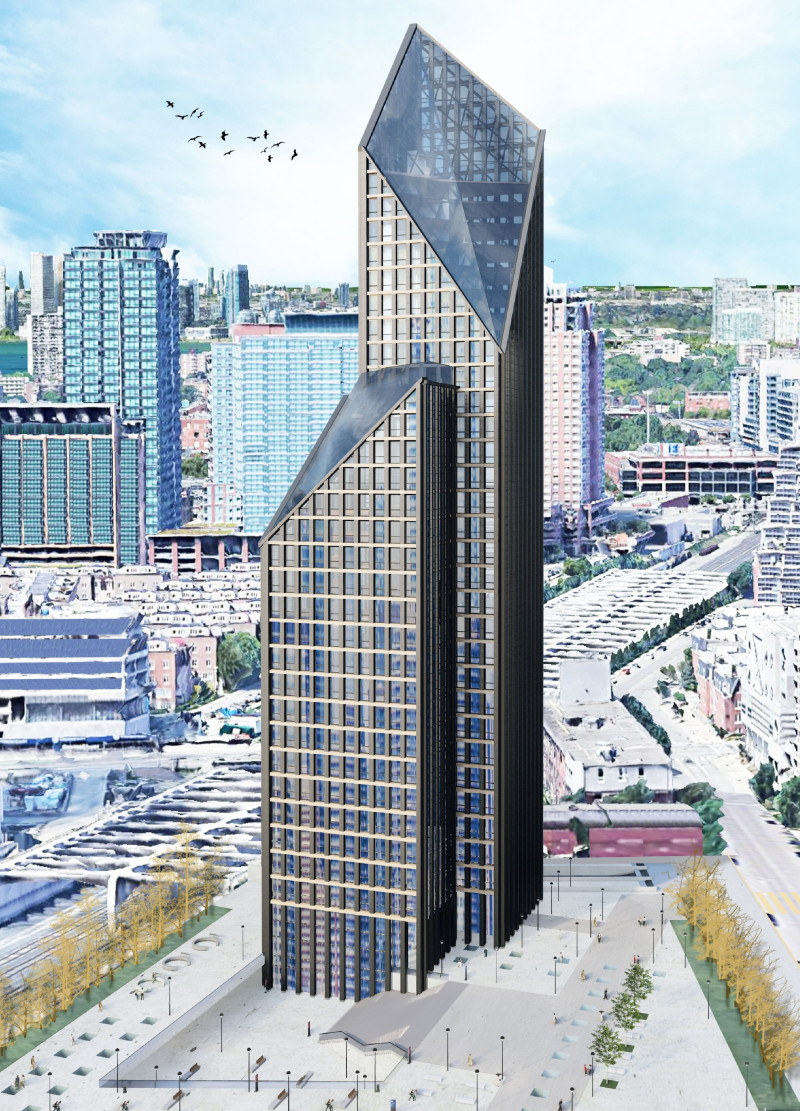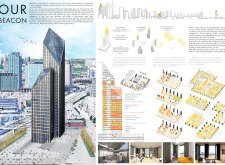5 key facts about this project
The design addresses the pressing need for affordable housing in Toronto. It envisions a living environment that goes beyond the basic function of providing shelter. The concept integrates spaces for various activities such as learning, working, exercising, and socializing. By focusing on community and interaction, the design redefines how homes can support modern lifestyles.
Shared-Ownership Spaces
Central to the design are the shared-ownership spaces. These areas encourage residents to meet and interact without losing their individual privacy. They are carefully positioned to create opportunities for connection while allowing personal space. This approach balances community engagement with the need for private living quarters. It recognizes that social ties are crucial for a supportive living environment.
Economic Sustainability
The project incorporates a model of economic sustainability by allowing residents to share, donate, or rent their shared ownerships. This feature can generate additional income, which helps in maintaining the building and reduces the financial burden on residents. This model creates a supportive financial structure that benefits both individuals and the wider community. It highlights how thoughtful design can promote financial stability in urban settings.
Adaptability and Functionality
Adaptability is a key principle in the design. Living spaces are flexible to meet the changing needs of families over time. The design acknowledges that urban populations are dynamic; thus, homes must be able to adjust accordingly. Functionality is enhanced through designated areas like libraries, meeting rooms, and fitness spaces. These facilitate various activities and encourage residents to make full use of their living environment.
The careful melding of these features results in a living experience that is relevant to today’s urban life. Alongside these shared spaces, a community garden offers a quiet spot for relaxation and connection with nature. This element adds another layer to the living environment, supporting both personal reflection and community engagement.




















































